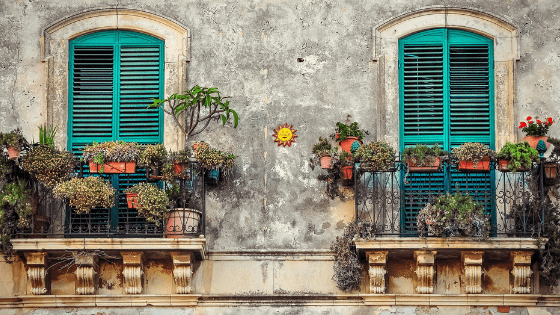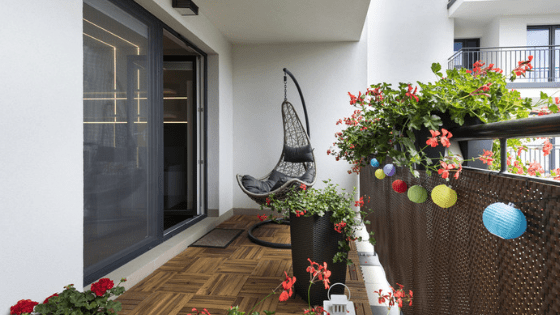Gardens have amazing therapeutic and lifestyle benefits that can help us keep ahold of our mental and physical health. These benefits extend to children who participate in gardening activities, as they develop an appreciation for nature’s growth and life cycles.
Many gardeners find it to be a healing activity in trying times. Gardens are beautiful to look at, and they bring a bit of hard-earned nature right to our porches and personal spaces. Additionally, gardening can give us a sense of accomplishment that gives up a boost during busy days.
Vegetable gardens help us eat nutritious foods complete with all their freshest vitamins and minerals, and the act of gardening can count as our physical activity for the day. Children who garden are more likely to enjoy natural fruit and vegetables.
Gardening is also a good opportunity for fostering meaningful family connections. Children get to see adults participate in one of their own perennial pastimes, digging in the dirt and playing with mud. While garden spaces also engage their senses and encourage exploration.
For many of us, however, the intention to make a garden is there, but implementation is difficult due to limited space. We think of gardens as needing grassy patches and soil, and when you only have a porch or balcony which already contains your outdoor dining set and outdoor gas grill, your options will likely feel restricted. Whether this is your first garden or you’re a garden veteran, container gardening in a small space provides new challenges as well as easy new easy ways to control your garden environment.

Begin Container Gardening
When you don’t have a proper yard, it’s time to start growing your plants in containers. Containers have a number of benefits. They allow you to water just the pot, and save you from having to water your whole yard. They also offer a controlled environment for your plant where you can easily alter the salinity and pH of the soil each season.
When it comes to picking your containers and organizing your porch garden space, you’ll want to choose the deepest container you can find that also works within your goals. Deeper containers will allow you to plant some children’s favorites, such as broccoli, cauliflower, and radishes.
Additionally, Deep containers will mean less frequent watering and allow for more space for the healthy roots to dig in. Deeper containers will often make your plants taller, which keeps their fragile stalks away from children’s grasping hands until you’re ready to help them.
You can raise many vegetables in more shallow containers, from leafy lettuces to cherry tomato plants. When it comes to container gardening, herb gardens tend to be some of the most rewarding, since they require relatively little work, are easy for children to pick without damaging them, and can brighten up just about any meal.
Use Your Natural Sunlight
While you can work around spatial restrictions, gardening without sunlight can be very difficult, requiring extra lighting setups and timers. Rather than trying to substitute for sunlight in your garden, make it easier on yourself by planning your garden around the parts of your balcony or porch that do get sun. Then, if you find that it’s not enough, you can put in additional fluorescent or LED lights.
Invest in Good Potting Soil
It’s important to find potting soil that contains plenty of nutrients for your plants. Less dense potting soil will be more capable of holding in water so that you don’t need to water as frequently. It also allows air to get to the roots for drainage and mildew prevention.
Good ingredients for potting soil include organic material, such as peat moss, pine bark, and perlite or vermiculite. Beware of soil that contains chemical fertilizers, as many of these become very high in sodium as they break down.

Plant Herb Companions in Your Flower Pots
Children’s gardens allow children to use their five senses during their outdoor exploration. To capture your children’s attention and have them happily explore your little garden, it’s helpful to plant for many senses at once. You can do this with companion planting where a few different plant varieties share the same container.
Choosing a vibrant and, for safety’s sake, edible flower can be complemented with a fragrant herb filler, such as sage or thyme. This will allow your children to experience four out of the five senses in one garden pot. Or, if you want to forego the ornamental flowers entirely, try planting strawberries in your main flowerpots instead.
Make Sure Everything is Non-Toxic
If children and pets will eventually be exploring your garden, it’s best to keep everything you plant non-toxic and even edible. This isn’t as big an issue with fruits, vegetables, and herbs, but when it comes to flowers, you want to be careful to pick flowers that humans can eat.
It’s also normally a bad idea to use pesticides and chemical fertilizers where children are involved. Children will have difficulty distinguishing between those plants you might have sprayed with chemicals and those who haven’t. To keep everyone safe, it’s best to use organic matter for fertilizer.
Use Your Vertical Space
Spatial limitations make it advantageous to plant up and train your plants to grow vertically as much as possible. You can hang a trellis on your balcony wall and plant a pot below it to encourage vining vegetables, such as green beans, sugar snap peas, and cucumbers.
You might also consider layered containers, such as stackable containers, or a wall of hanging baskets. While these methods will limit the vertical growth of your garden, they work well for lettuces, such as arugula, baby spinach, and baby kale. This is also a good option for maximizing the space taken up by your herb garden, including your parsley, chives, dill, rosemary, and sage, and even strawberries.
Keep Track of Your Plants
Since gardening is a long-term process that can take a lot of learning and experience, it’s helpful to keep a journal or spreadsheet of your planting and gardening exploits. Even if you only open this once a year, it’s worthwhile to note what kind of soil and fertilizers you use, how frequently you water, and as a result, how the plants eventually turn out and how much they yield. This will help you feel in control of your planting process and learn as you go.
Gardening is an incredibly rewarding hobby that allows you to serve your family the nutritious foods that they can help to create with their own hands. Container gardening allows us to plant even in non-traditional spaces, such as porches and balconies, as long as light is available. If you find the process to be a little overwhelming, remember that you can start small, with just one pot or plant type at a time, and expand when you’re ready.
 Kaboutjie SA Mommy Blogs by Lynne Huysamen
Kaboutjie SA Mommy Blogs by Lynne Huysamen




